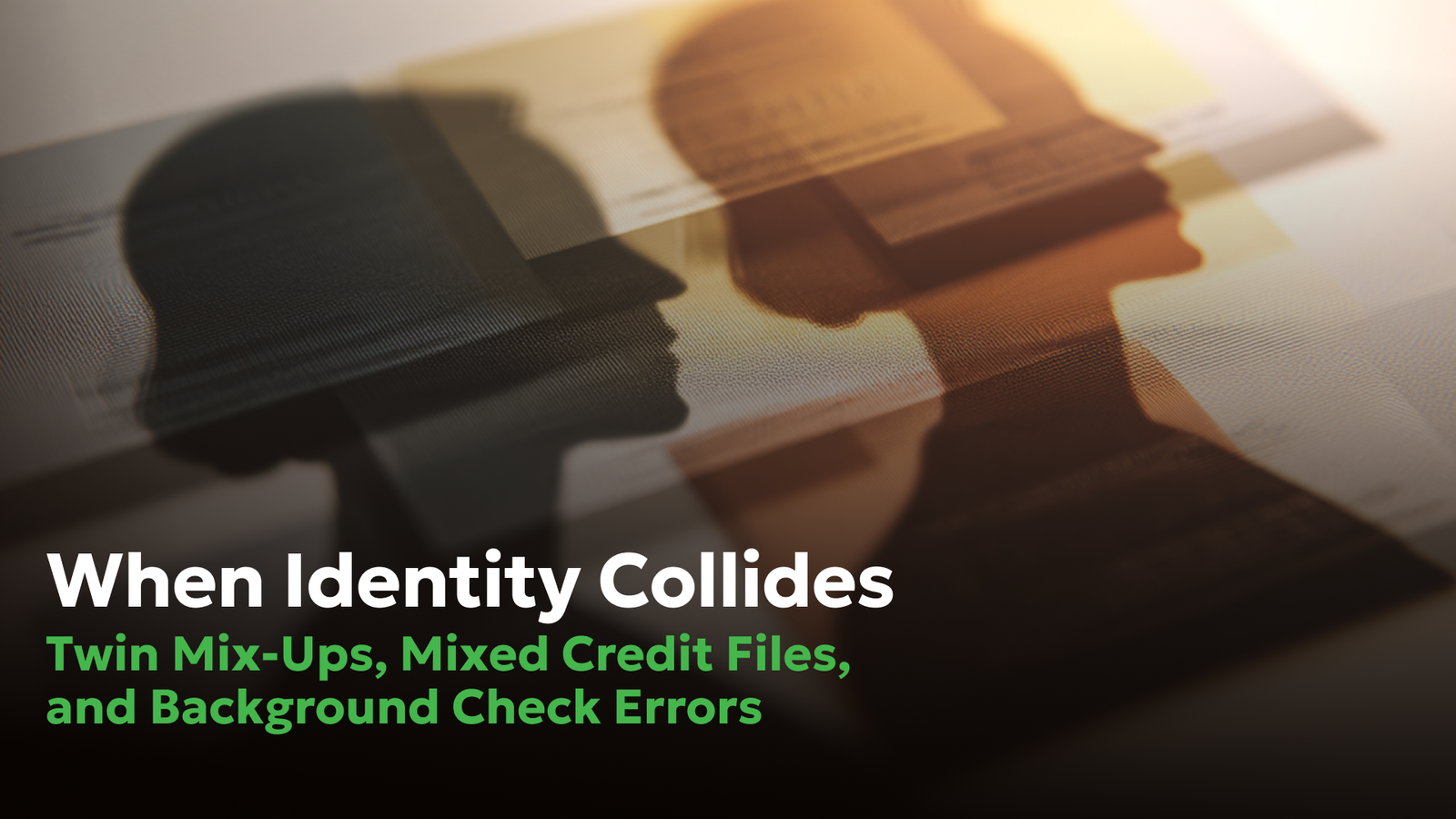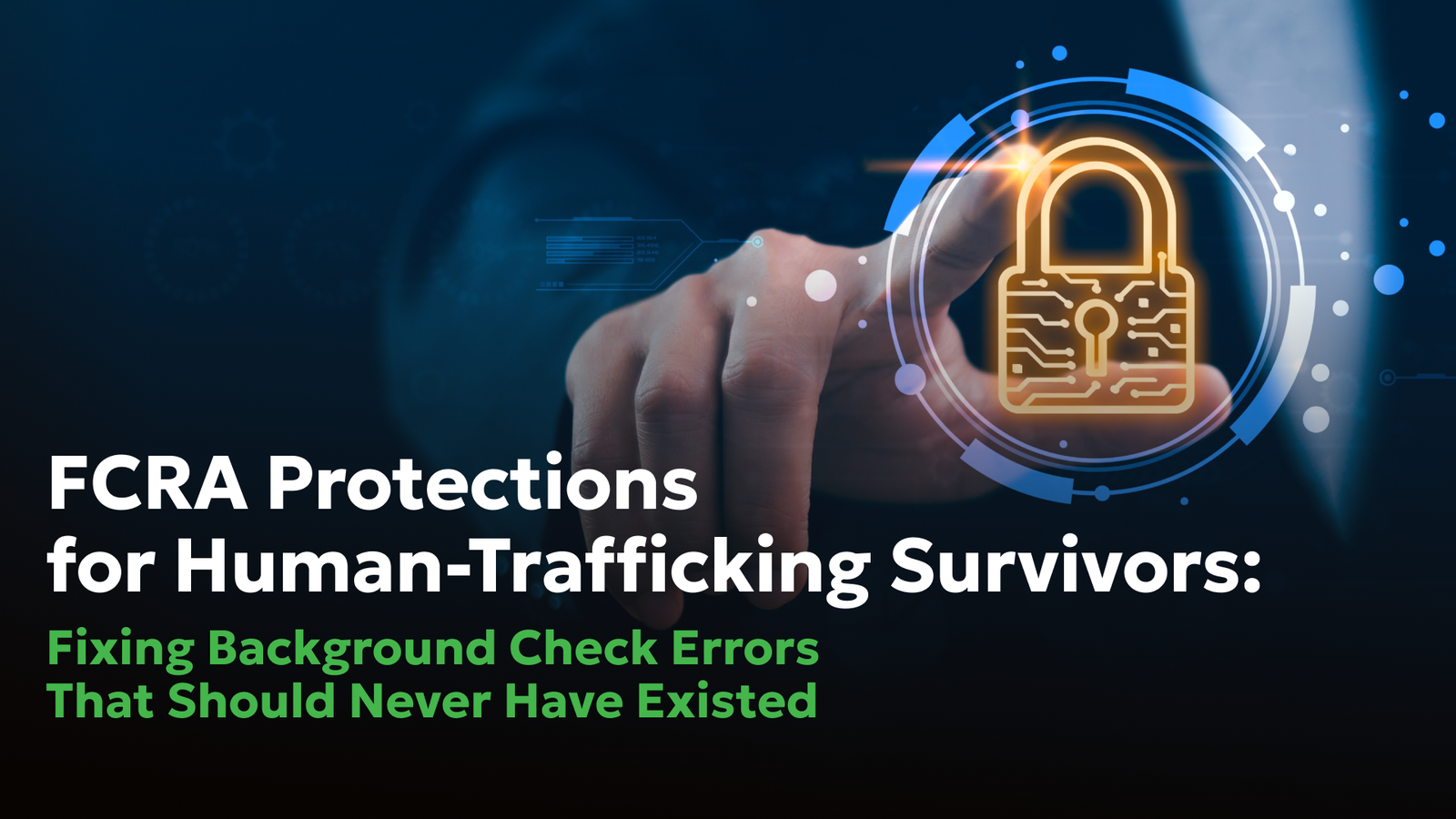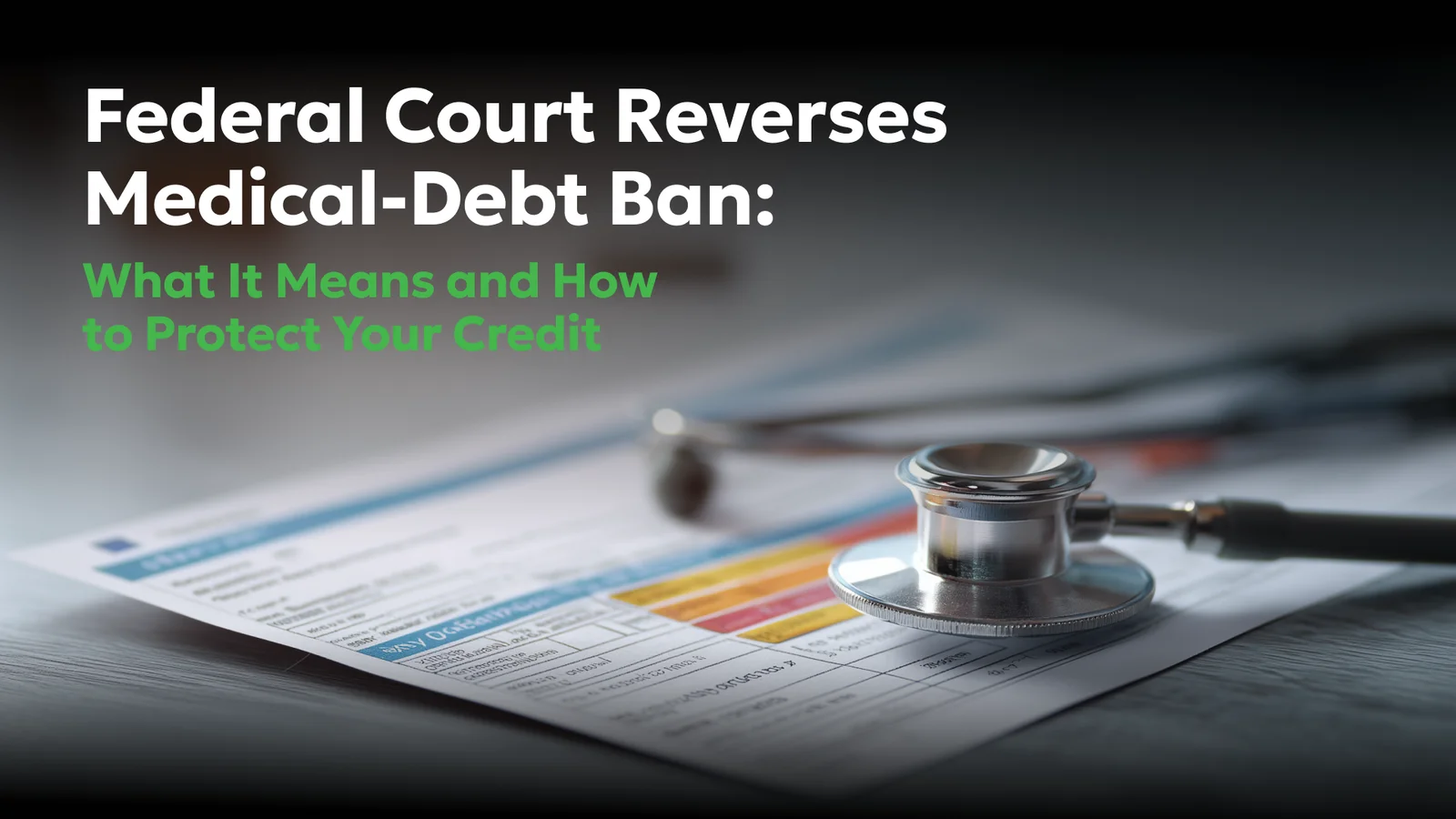Credit Reporting Inaccuracies
- Blog
Credit Reporting Inaccuracies
categories

11 Feb, 2026
David Pinkhasov
When Identity Collides: Twin Mix-Ups, Mixed Credit Files, and Background Check Errors
Learn why mixed credit files and mixed background check errors happen, who is most at risk, and how mistaken identity can derail credit, jobs, housing, and more. This article explains the difference between credit file mix-ups and background report mix-ups and the legal steps that can restore your true record.
4
11 min

21 Jan, 2026
Yaear Weintroub
FCRA Protections for Human-Trafficking Survivors: Fixing Background Check Errors That Should Never Have Existed
Survivors of human trafficking may still face credit report and background check errors caused by abuse. Learn how the FCRA Regulation V allows harmful information to be blocked, and what to do when reporting agencies fail to comply.
24
5 min

21 Jan, 2026
Daniel Cohen
How to Dispute TransUnion Credit Report Errors
Mistakes on your TransUnion credit report can lower your score, block loans, and cost you real opportunities. This step-by-step guide explains how to file a dispute, what documents to submit, what happens after the 30-day investigation period, and when FCRA violations give you the right to take legal action - with help available at no upfront cost.
2907
22 min

20 Jan, 2026
Nisan Zaghi
Federal Court Reverses Medical-Debt Ban: What It Means and How to Protect Your Credit
A federal court overturned the CFPB’s medical-debt ban. Learn how medical collections can still affect your credit, what protections remain under state law, and how to dispute medical debt errors under the FCRA.
26
7 min

23 Dec, 2025
Meir Rubinov
Inaccurate Credit Reports: How Common Errors Shape Consumers’ Lives
Credit reports quietly shape access to loans, housing, jobs, and insurance. Drawing on decades of government and consumer research, this article examines how common credit report errors really are, why they persist, and how inaccurate data continues to harm consumers’ lives.
51
5 min

17 Oct, 2025
Daniel Cohen
How to Dispute a Credit Report and Win
You have the right to an accurate credit report and to dispute errors. Learn how and how Consumer Attorneys can help.
3074
7 min

19 Sep, 2025
Daniel Cohen
Data Furnishers’ Mistakes Can Have Deadly Consequences
Personal credit history has become a commodity, and those who profit from it are an inverse pyramid.
1447
11 min

17 Sep, 2025
Daniel Cohen
How long does bankruptcy stay on your credit report
Types of bankruptcy and how they affect your financial life.
1582
11 min

17 Sep, 2025
Daniel Cohen
How to Remove Late Payments from Your Credit Report
Late payments don’t have to be on your credit report forever
2606
7 min

11 Sep, 2025
Daniel Cohen
Equifax Credit Reports: All You Need to Know
Are Equifax credit errors robbing you of opportunities? Fight back with Consumer Attorneys!
1556
14 min

11 Sep, 2025
Daniel Cohen
How Credit Reporting Agencies Ruin People's Lives
Like some kind of financial long Covid, when credit reporting agencies and background check companies like On Site LLC don’t fix their mistakes (even after agreeing to and paying a cash settlement) the result is on-going suffering that never ends, like a festering wound.
1465
11 min

11 Sep, 2025
Daniel Cohen
There is an error on my credit report. How can Consumer Attorneys help?
Thanks to Consumer Attorneys, a client was able to recover from multiple credit report errors.
1432
6 min
Contact Us
RIGHTS END
W
R
ONGS™Free Consultation
Zero Costs and Fees to You.
You pay nothing. The law makes them pay.
You pay nothing. The law makes them pay.
Contact Us
Head Office NY
68-29 Main Street, Flushing, NY 11367
Office
706 East Bell Rd., Suite 114, Phoenix, AZ 85022


